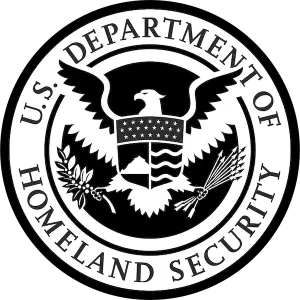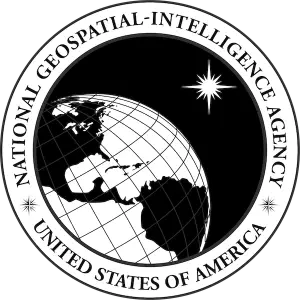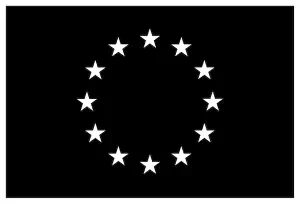Projects
2024

-
Sudan Conflict Observatory
Budget: ...
Sponsor: State Department (MITRE subcontract)
Role: co-PI, w. Daniel Rothbart
Keywords: Image analysis, Change detection, Deep Learning
Summary: Image analysis and change detection
2023-2027

-
METROPOL - Modeling and Encoding TRajectories Of Patterns Of Life
Budget: $2,900,000
Sponsor: IARPA (L3Harris subcontract)
Role: PI, w. T. Anderson, H. Kavak
Keywords: Agent-based Modeling, Outlier Detection, Language Modeling
Summary: Urban simulations
2021-2025

-
NSF: III: Small: From Spatial Language to Spatial Data - a simulation-based approach
Budget: $500,000
Sponsor: NSF
Role: PI, w. A. Anastasopoulos
Keywords: spatial language, spatial simulation
Summary: Devising means to better understand people's perception of space by deciphering such spatial language terms. This includes (i) developing a simulation to crowdsource geospatial language expression data by having users interact in a virtual environment and (ii) exploring neural language modeling approaches for the problem of grounding language to this spatial context.
2021-2026

-
NSF: Data-Driven Modeling to Improve Understanding of Human Behavior, Mobility, and Disease Spread
Budget: $2,300,000
Sponsor: NSF
Role: co-PI, w. T. Anderson. A. Zuefle, H. Kavak, A. Roess, S. Luke
Keywords: agent-based modeling, disease simulation, spatial simluation, digital twin
Summary: The goal of this project is to investigate how including spatiotemporal heterogeneity of human behavior and mobility in ABMs of disease spread will 1) better explain variations of human response to disease spread, 2) improve predictions of infectious disease spread, and 3) prescribe the most effective mitigation policies.
2021-2022

-
Distributed Semi-Supervised Temporal Learning for Global Change Monitoring (DiSSTL)
Budget: $750,000
Sponsor: IARPA (Blacksky subcontract)
Role: co-PI, w. K. Wessels and A. Zuefle
Keywords: image analysis, change detection, remote sensing
Summary: IARPA’s Space-based Machine Automated Recognition Technique (SMART) Program strives to automate the quantitative analysis of space-based imagery to perform broad-area search for natural and anthropogenic events and characterize their extent and progression in time and space by fusing very large data from multiple satellite sensors.
2019-2021

-
Guaranteeing the Where – Towards Authoritative Cryptographic Geospatial Computing
Budget: $24,000
Sponsor: GMU COS-VSE seed grant
Role: co-PI, w. F. Baldimtsi
Keywords: cryptography, data privacy
Summary: A seed grant to investigate the use of Blockchain technology for spatial verification, i.e., confirming that objects are where they say they are. This verification can be accomplished by a third party that is unaware of the actual locations. The current approach to this so-called Proof-of-Location (PoL) of transitory objects is to create a tamper-proof infrastructure such as dedicated location beacons. Our effort will lay the groundwork for providing a PoL protocol without the need for such hardware.
2018-2020

-
A ground‐truth simulator for socio‐spatial alternate worlds
Budget: $1,500,000
Sponsor: DARPA
Role: co-PI, w. A. Zuefle, A. Crooks, and C. Wenk (Tulane)
Keywords: agent-based modeling, urban simulation, spatial simluation, digital twin
Summary: Test and evaluating different methods and tools for analyzing complex social phenomena.
2017-2018

-
DIVES: Discovering Indicators for Interactions in Finance and Government Sector
Budget: $37,000
Sponsor: GMU Provost Award seed grant
Role: co-PI, w. N. Tryfona, J. Wedel, M. Renz
Keywords: graph mining, data visualization, public policy
Summary: In today’s complex environment the way power and influence are wielded and understood has changed. Intuitively we sense that the old models of understanding decision-making and governance no longer suffice. To shed light on the issue, this project follows a data-driven scientific approach that brings together a diverse team of scholars from the Schar School and the DataLab /College of Science to analyze and visualize patterns of linkage, influence, and governance in the crucial arenas of finance and the military.
2016-2022

-
NSF/AITF: Collaborative Research: Modeling Movement on Transportation Networks Using Uncertain Data
Budget: $500,000
Sponsor: NSF
Role: PI, w. A. Zuefle
Keywords: urban analytics, spatial data science, mobility modeling
Summary: Creation a unified framework for aggregating and analyzing diverse and uncertain movement data on transportation networks and to provide tools for querying and predicting traffic volume and movement in urban environments.
2015-2016

-
Health Narratives: A Multidisciplinary Approach to Understanding Health-Related Information Generation and Dissemination in Social Media
Budget: $50,000
Sponsor: GMU Provost Award seed grant
Role: co-PI, w. A. Stefanidis, A. Croitoru, A. Crooks, K. Jacobsen, P. Delamater
Keywords: social media mining, public health
Summary: With major health organizations embracing social media (SM) as a new avenue to communicate and harvest health-related information to/from the general public, advancing our understanding of the patterns of health narrative in SM is a novel multidisciplinary scientific challenge with substantial potential impact. This is the topic that we are addressing in this project.
2015

-
Web Mapping Platform Visualizing Risk Assessment
Budget: $64,000
Sponsor: DHS (University of Maryland sub-award)
Role: PI
Keywords: Web mapping, data visualization
2014-2021

-
Generation and Management of Crowdsourced Place Gazetteers
Budget: $750,000
Sponsor: NGA
Role: PI, w. A. Croitoru, A. Crooks, and A. Stefanidis
Keywords: geospatial crowdsourcing, map construction, social media mining
Summary: Traditional gazetteers and maps are artifacts of a geometry-driven view of the world, communicating primarily locations and their coordinates. Human activities may assign multiple meanings to the same geographic location. The activities associated with a space transform it to a sociocultural place, by assigning to it meaning, scope, and function, that far exceed its geometric coordinates. Understanding and mapping places is a key geospatial research challenge, as we are transitioning from mapping the surface of the world to monitoring and assessing geo-located activities.
2013-2015

-
GEOSTREAM - Exploiting User-Generated Geospatial Content Streams
Budget: 900,000 Euros
Sponsor: European Commissions, FP7, ICT
Role: PI, external collaborator (after 2013).
Keywords: geospatial data management,, geospatial content generation, location-based services, mobile computing, Web publishing.
Summary: GeoWeb 2.0 is the geographic embodiment of the Web 2.0 vision for the next generation of geographic information publishing, discovery and use on the Web. In this context, GEOSTREAM aims at providing novel techniques and tools for extracting, processing, and exploiting user-generated geospatial information on the Web.
2012-2014

-
TMGuide - TALOS Mobile Guides
Budget: 500,000 Euros
Sponsor: European Commissions, FP7, ICT
Role: PI, external collaborator (after 2013).
Keywords: mobile computing, location-based services, context, personalization, geocoding, web scraping.
Summary: Enhance mobile travel guide prototypes to bring them to a market stage and to promote their adoption and use among the respective client base. A key aspect in this project will also be on how to bring geographic information to life, i.e., converting static maps to interactive geospatial information.
2012-2014

-
SIMPLEFLEET - Description: Democratizing Fleet Management Solutions
Budget: 1,400,000 Euros
Sponsor: European Commissions, FP7, ICT
Role: PI, external collaborator (after 2013).
Keywords: map matching, spatiotemporal data warehousing, routing, shortest-path computation
Summary: Research project focusing on the creation of a traffic data pool for various areas in Europe based on collected vehicle tracking data and other traffic data sources.
2010-2014

-
GECROWD - Creating a geospatial knowledge world.
Budget: 3,600,000 Euros
Sponsor: European Commissions, FP7, Initial training network (ITN)
Role: co-PI, w. Timos Sellis (NTUA)
Keywords: geospatial crowdsourcing, stream processing, geodata fusion, mobile computing.
Summary: Basic research project in the areas of User-contributed geospatial content and geospatial data streams. Funded 10 PhD students across universities in Europe.
2008-2010

-
TALOS - Task aware location-based services for mobile environments.
Budget: 1,100,000 Euros
Sponsor: European Commissions, FP7, Research for SMEs
Role: PI
Keywords: mobile computing, location-based services, context, personalization, geocoding, web scraping.
Summary: Extending the concept of location-based services to include tasks. Concept and actual prototype development for mobile travel guides (iPhone).
2006-2008

-
TRACK&TRADE - Building a data mart for floating car data.
Budget: 1,100,000 Euros
Sponsor: European Commissions, FP6, CRAFT
Role: PI
Keywords: map matching, spatiotemporal data warehousing, routing, shortest-path computation.
Summary: Deriving traffic information from “Floating Car Data”, i.e., using GPS tracking data form vehicle fleets. Shortest-path computation based on historic and live traffic situations. Prototypes for Athens, Vienna and Berlin.
2006-2009

-
CITER - Creation of a European History Textbook Repository.
Budget: 1,800,000 Euros
Sponsor: European Commissions, eContentplus programme
Role: PI
Keywords: geocoding, information extraction, text processing, spatiotemporal data management, application design and prototyping.
Summary: Creation of a European History Textbook Repository. Integration of multi-language history textbooks based on temporal, geospatial and thematic (history) metadata. Development of a Web-based prototype.
2004-2005

-
ARCHAIORAMA - Development of a GIS system for archaeological excavation documentation.
Budget: 380,000 Euros
Sponsor: Greek General Secretariat of Research and Technology (GSRT)
Role: co-PI
Keywords: data modeling, application design, uncertain spatial information management
2002-2004

-
DBGLOBE - A Data - centric Approach to Global Computing.
Budget: 900,000 Euros
Sponsor: European Commissions, FP5, IST-FET
Role: co-PI
Keywords: map matching, spatiotemporal data warehousing, routing, shortest-path computation.
Summary: Development of data management technologies for mobile computing, i.e., design of massively distributed systems based on mobile devices.
2002-2004

-
PATHFINDER - Development of data management and data mining techniques for floating car data (FCD).
Budget: 80,000 Euros
Sponsor: Greek General Secretariat of Research and Technology (GSRT)
Role: co-PI
Keywords: map-matching algorithms, spatiotemporal data warehousing, data mining